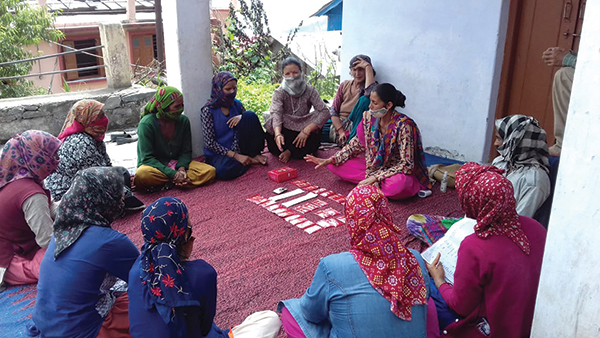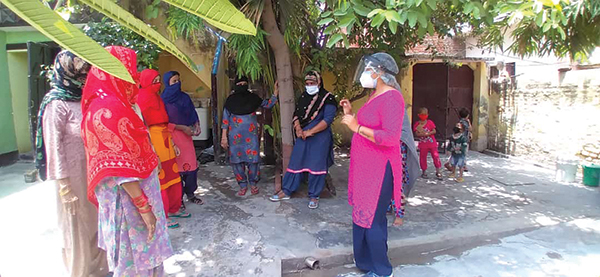The population of Uttarakhand is vibrant, diverse and predominantly young, accounting for approximately 10.1 million people. COVID-19 pandemic has taken the life of around 7,300 people in the state. This is particularly important because the impact of COVID-19 on access to family planning sexual and reproductive health services is likely to reverse the decades of progress made so far.
According to a survey by the World Health Organization, family planning services are among the most interrupted services in the world. During the first wave of the COVID-19 pandemic in Uttarakhand, basic health services were severely affected, but the burden of the second wave appeared to further hamper progress. Blockages, restricted movement, fear of infection, and interruptions in the provision of maternal health services, such as prenatal care and institutional delivery, can lead to adverse pregnancy outcomes. Due to COVID-19, the availability of contraceptives has been severely restricted. During this period, an estimated 50% of couples in Uttarakhand were affected.
This year’s World Population Day focused on the rights and choices of women and girls, emphasizing prioritizing the reproductive health of all people as key to overall development. We must expand gender-inclusive contraceptive policies and implement programs and services that support choice and quality of care, rather than focusing on a single contraceptive method. RDI presumes that services must focus on youth, rural communities and the most vulnerable groups. Attention must be paid on dignity, choice and empowerment of citizens. It is important that unless access to family planning and contraceptive services is not fair, we cannot guarantee the health, safety and well-being of everyone.
Since 1994 RDI has put enormous effort to serve family planning and contraceptive services among each and every individual of rural setup including disadvantaged areas. RDI ensures delivery of contraceptives, prioritizing the quality of contraceptives, rights and choices of individuals. Experiences of the past two decades indicated that the community’s perception has changed in recent times. The community is now seeking quality-based services rather than quantity. Secondly, the demand of contraceptive is no longer restricted to married eligible couples but is also required for adolescents and unmarried youth. Finally, it was clear that large numbers of people do not depend on public sector for contraceptives due to their limited choice. Poor quality and delayed delivery are not feasible for clients. Using mobile phones at grassroots level, realtime client based information can be ensured. This realtime information is helpful in the facilitation of supply and distribution process. It also helps to ensure follow up services within short intervals of time. Ultimately it reduces the discontinuation rate of contraceptives to some extent.


